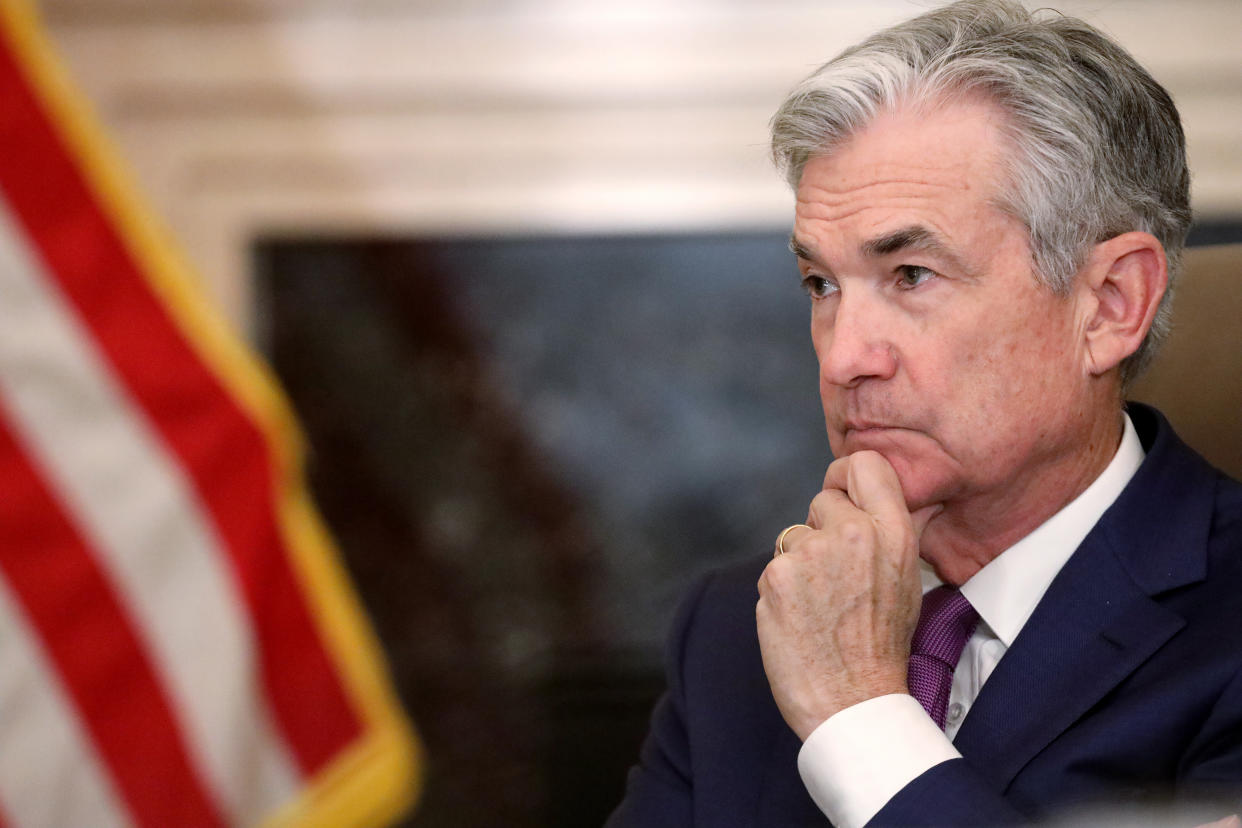Liberal Groups Urge Federal Reserve To Block Mergers Under Coronavirus Bailout

When the Senate unanimously passed the coronavirus rescue package in March, it opted against putting substantive restrictions on how companies use the emergency funding. The bailouts have very few strings attached, allowing large corporations to buy back stock, pay out dividends to shareholders, funnel millions of dollars directly to executives and go on merger binges to buy up smaller, weaker competitors.
But the Federal Reserve, which is overseeing up to $4 trillion in funding under the rescue plan, still commands significant influence over how companies use this money. So this week, nine progressive organizations, led by the American Economic Liberties Project, sent a letter to Fed Chairman Jerome Powell urging him to block any company that receives rescue funding from engaging in merger activity.
“The Fed must aggressively attempt to retain institutional credibility as a neutral actor in our economic order,” the groups wrote. “It should not help finance a merger wave that leads to large-scale consolidation.”
By snapping up their rivals, big firms can eliminate sources of competition on worker pay and consumer price. Economists believe that one reason wage growth was so slow over the course of the recovery from the 2008 financial crisis was that firms engaged in a historic merger binge in the aftermath of the crash. Some of those blockbuster deals resulted in immediate, massive layoffs. When Pfizer acquired Wyeth Pharmaceuticals, they eliminated 19,500 jobs (even as Wyeth executives received a cool $75 million).
But layoffs ― which we’re already seeing in jaw-dropping numbers due to the pandemic itself ― are only part of the damage that mergers do to working people. With fewer companies competing for pharmaceutical workers after the Pfizer-Wyeth merger, the industry as a whole enjoyed a decline in pressure to pay better salaries or offer better benefits in order to keep employees from jumping ship.
“Unless the Federal Reserve bans the use of [bailout] funding for mergers and acquisitions, this could result in a major restructuring of American businesses that increases the power of large corporations,” said Marcus Stanley, policy director at Americans for Financial Reform, a Wall Street watchdog organization that also signed Thursday’s letter.
Due to the weak oversight provided by Congress, liberal groups are essentially reduced to begging Fed Chairman Powell to do the right thing. But Powell has responded to previous appeals for accountability. When Bharat Rhamamurti, a Democratic member of the official oversight panel for the coronavirus bailout, asked the Fed to publicly disclose every rescue transaction it makes under the program, Powell assented. That commitment to transparency is sharply different from the Fed’s approach during the last financial crisis, when the central bank refused to disclose detailed information about its emergency operations until courts ruled against it in a lawsuit and Congress passed legislation requiring an audit.
The groups involved in Thursday’s letter are hoping for a similar result on merger restrictions.
“The Federal Reserve must make sure corporations do not use public money to consolidate markets and create new monopolies,” Matthew Stoller, research director for the American Economic Liberties Project, said in a written statement.
Antitrust policy has become a flashpoint on both the left and right over the past few years, with think tanks, including the Open Markets Institute, seeking to persuade legislators that excessive corporate concentration is undermining workers’ power and business performance. But whatever the intellectual climate on Capitol Hill, economic downturns tend to exacerbate corporate concentration. As small companies fail, large firms with access to cash swoop in to grab their market share. With the Fed providing trillions of dollars in liquidity to large firms in the current crisis, the potential for a wave of hyper-consolidation is acute. In their letter on Thursday, liberal groups emphasized, in particular, the danger of large private equity firms using that funding to take over productive businesses and reduce payrolls.
“It’s critical to ensure that the Federal Reserve doesn’t accidentally finance a wave of unnecessary private equity buy-outs,” said Eileen Appelbaum, co-director of the Center for Economic and Policy Research, which joined the letter.
The other groups involved in the letter were the Action Center for Race and the Economy, Demand Progress, the Institute for Local Self Reliance, Main Street Alliance, Public Citizen and the Public Equity Stakeholder Project.
Zach Carter is the author of “The Price of Peace: Money, Democracy, and the Life of John Maynard Keynes,” available for pre-order from Random House.
A HuffPost Guide To Coronavirus
Stay up to date with our live blog as we cover the COVID-19 pandemic
What happens if we end social distancing too soon?
What you need to know about face masks right now
Will there be a second stimulus check?
Lost your job due to coronavirus? Here’s what you need to know.
Why it takes so long to make a coronavirus vaccine
Parenting during the coronavirus crisis?
What coronavirus questions are on your mind right now? We want to help you find answers.
Everyone deserves accurate information about COVID-19. Support journalism without a paywall — and keep it free for everyone — by becoming a HuffPost member today.
Also on HuffPost
Love HuffPost? Become a founding member of HuffPost Plus today.
This article originally appeared on HuffPost.


